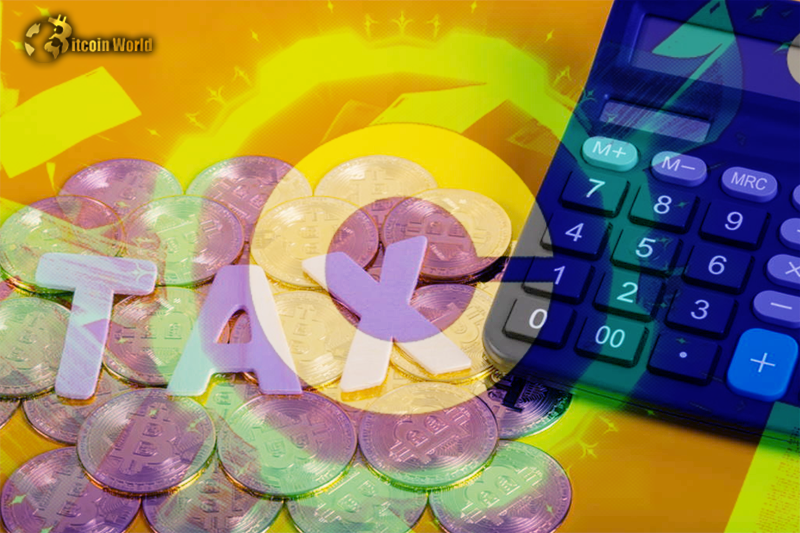Are you ready for a major shake-up in the crypto world? The IRS has just dropped a bombshell – new proposed regulations for taxing cryptocurrencies! If these rules get the green light, get ready for changes starting January 2026. But not everyone is happy about it. Paul Singh Grewal, the top legal mind at Coinbase, a leading crypto exchange, is sounding the alarm. He’s urging the crypto community to stand united against what he sees as a potential overreach by the US Treasury.
What’s Got Coinbase’s Legal Chief So Worried?
Grewal didn’t mince words in his recent posts on X (formerly Twitter). He believes these proposed crypto tax reporting guidelines go way beyond what Congress intended. His biggest fear? That these rules could set a dangerous precedent, paving the way for widespread surveillance of crypto transactions. And that’s not all – he warns these regulations could seriously hurt the burgeoning digital asset industry.
Let’s break down what’s actually being proposed.
Decoding the IRS’s Crypto Tax Blueprint
On August 25th, the IRS unveiled its plan for new crypto tax reporting regulations. The core idea? To make crypto taxes simpler and crack down on tax evasion. Here’s the gist:
- New Form on the Horizon: Crypto brokers will be required to use a brand-new form – Form 1099-DA – to report crypto transactions to the IRS.
- Who’s Included? These rules aren’t just for the big centralized exchanges. They cast a wide net, including:
- Centralized exchanges
- Decentralized exchanges
- Crypto payment processors
- Certain online wallets
- Crypto brokers
- Effective Date: If approved, these regulations are slated to kick in from 2026. However, the reporting starts from 2025, meaning brokers will need to report transactions from 2025 beginning in January 2026.
Why the New Form? The Treasury’s Perspective
The U.S. Treasury Department is pitching this new form as a win for taxpayers. Their argument is that it will simplify the often-confusing world of crypto taxes. According to them, Form 1099-DA will:
- Simplify Tax Filing: The form aims to make it easier for taxpayers to understand their crypto tax obligations.
- Reduce Complexity: No more complicated calculations or hiring specialized crypto tax services – at least, that’s the goal.
- Boost Compliance: By making reporting clearer, the IRS hopes to reduce tax evasion in the crypto space.
While the Treasury paints a picture of streamlined tax filing, some lawmakers are pushing for even faster action, urging the IRS to implement crypto tax reporting requirements even before 2026.
Coinbase’s CLO: “This Isn’t About Simplification, It’s About Surveillance”
Despite the Treasury’s assurances, Paul Grewal of Coinbase strongly disagrees with the narrative that these rules are simply about aligning crypto with traditional finance reporting. He argues that these regulations could have far-reaching and negative consequences.
Here are Grewal’s key concerns, as highlighted in his X posts:
- Surveillance Precedent: Grewal fears these rules will create a precedent for mandatory reporting of virtually every digital asset transaction. Imagine having to report every time you buy a coffee with crypto!
- Data Overload, Minimal Purpose: He argues that the regulations would necessitate collecting massive amounts of user data, without serving a clear “legitimate public purpose.” This data collection could be excessive and unnecessary.
- Burden on Web3 Innovation: Grewal warns that these onerous requirements could stifle innovation, particularly for Web3 startups that are still in their early stages.
- IRS Data Deluge: He questions whether the IRS even has the capacity to effectively process and analyze the sheer volume of data these regulations would generate. Will the IRS be drowning in data without being able to use it effectively?
Are We Heading Towards Crypto Surveillance?
Grewal’s warnings raise a crucial question: Are these regulations a necessary step towards responsible crypto taxation, or do they represent an overreach that could stifle the industry and infringe on user privacy?
The debate is heating up, and the crypto community is now facing a critical moment. Will they rally against these proposed rules as Grewal urges? Or will these regulations become the new reality for crypto taxation in the US?
One thing is clear: the future of crypto regulation is being shaped right now, and the outcome will have significant implications for the industry and its users for years to come. Stay tuned as this story develops!
Disclaimer: The information provided is not trading advice, Bitcoinworld.co.in holds no liability for any investments made based on the information provided on this page. We strongly recommend independent research and/or consultation with a qualified professional before making any investment decisions.


